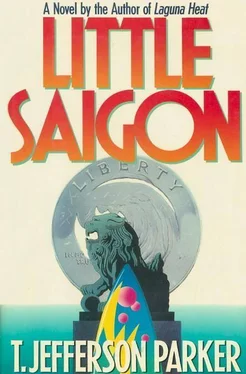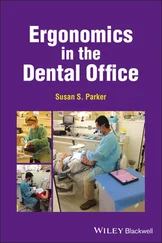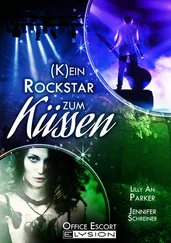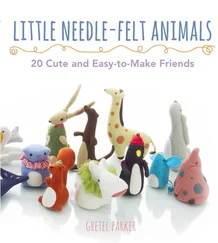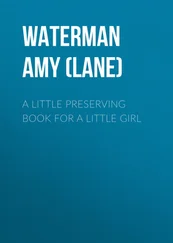It was the honorable thing to do, so I agreed.
That night I packed my things. There was not much to carry: a few cooking baskets and pots, my clothes, my guitar. I said good-bye to my home forever and walked out into the night. In my heart, I knew what I would do.
I could see a candle burning in Lam’s hootch. He was inside, sitting alone on his cot. He could see what my decision had been by the look on my face. He did not say any of the things I thought he would. He was very serious. He told me he loved me and wished me success. He hugged me. Then he gave me a pack that he had prepared and slung it over my back. It was small, but heavy and hard.
“This is for you and Lt. Frye to open together,” he said. His face was full of bravery and defeat. “Open it when you are together. And be very careful not to drop it or hit it hard. It has a fragile content. Good-bye, Kieu Li.”
Tearfully, I said good-bye and started out again.
I knew what Lam had done to me.
It was the last time I saw him.
When I got to the base, Lt. Frye was waiting as he said he would be. I was trembling, and I told him what Lam had put on my back. That he wanted us to open it together. That I feared it. Very carefully he removed it and carried it away. Later I learned that his demolitions experts had detonated the bomb, which was strong enough to kill ten men.
I stepped into my new hut and my heart was wailing. I was relieved. I was sad. This was my new life. Lt. Frye looked at me with kindness and I felt better. I was then able to acknowledge to myself how close to being killed I had come, not just that night but during all the nights and months before.
I lay in my new home and wept. Lt. Frye came after midnight. Lam had only made it one kilometer north before he was intercepted by a patrol. When he would not stop, they killed him. I gave myself to the lieutenant on the plank bed. He was the first man I had known, and the only man I have ever known. We were married two months later. Two weeks after that, he stepped on a mine and lost his legs. I knew that if he died, I would, too.
We live in America now. When I look back on those times, they are clear but distant, a dream that I cannot forget, a nightmare that I will always remember. We went to war and found love where most found only death. When the Day of Shame came, I watched on a television in California as Saigon fell. So many things have ended, so many have begun.
Frye closed the book and took a deep breath.
Li.
After all that, he thought, they take you offstage at the Asian Wind. He saw her struggling again, saw her blouse rip in their gloved hands, heard her screams through the amplifiers.
He remembered her, sitting at the dinner table on Frye Island, dressed in Western clothes, looking like a princess who had never slept in anything but silk sheets. He pictured her standing in Bennett’s living room one night, with her guitar strapped to her shoulder, playing a new song she had written. He thought of her on his own wedding day, lovely in that dress, standing in the row of women beside Linda, looking at him in absolute joy. And later, at the reception, dancing with her, when she had said into his ear, “The love shows on your faces, Chuck. You should never let it go and never let it die. It is not an easy thing to find, but it is an easy thing to lose.”
Champagne, three bottles.
He checked his watch. It was almost seven. He put on some good clothes and shaved twice. He brushed his teeth vigorously, thinking of Cristobel.
They got to the Sherrington hotel in time for the first fight. He flashed his press pass at the door. The attendant checked his list and told Frye it wasn’t good anymore. Frye mumbled apologies, went to the ticket window, and came up with two ten-dollar seats way in the back.
The doorman took their tickets with a sigh.
“Where can I find Mr. Mack?”
“Never heard of him. Try the directory.”
On fight-night the ballroom houses the ring, and rows of chairs pressed all the way to the walls. Frye stepped inside. His stomach fluttered a bit, and he felt good at the lights and the ring and the ropes and the general carnival atmosphere. Cristobel took his arm.
He worked his way to the third-to-last row, from which the ring looked like a bright sugar cube. He checked his program. Stinson was in the white, out of Bakersfield; Avila in the red, out of Sonora, Mexico. At the bell they moved toward each other with the slowness of men wading through water.
Frye stood. “I’m going to find Mack.”
“Yes, sir.”
“Sorry. I’ll be back in just a minute.”
He found the Elite listing in the lobby directory, and took an elevator to the eighth floor. Suite 816 was at the end of the hall, just across from the stairway. A small brass plaque said ELITE MANAGEMENT — PRIVATE. Frye knocked and waited; knocked again. The door was locked. He waited a moment longer, then headed back to the arena.
Cristobel smiled at him. “When you said a minute, you weren’t kidding. No dice?”
“None.”
He lifted his Bushnells and focused on the ring. Avila was a sinewy Latin, pesky, hard to hit. Stinson looked Irish, with heavy hands and thick calves. The kind of fighter who’ll run out of gas about the tenth, Frye guessed, if he hasn’t put his man away. But if he catches you with the right, you eat canvas. He’d seen Avila last year: The kid couldn’t be more than twenty.
He turned the binoculars ringside to see who’d gotten his old seat. It was Edison.
On one side of him was Lucia Parsons. On the other was Burke and his cowboy hat. Next to him was Paul DeCord. They all held gigantic beers.
Frye said nothing. He just looked through the binoculars and wondered what in hell his father was doing with Lucia Parsons and a man who kept spying on Bennett. He gave the glasses to Cristobel and looked down at the floor for a moment, thinking.
When he looked at the ring again, Stinson caught Avila with a right cross, then a left to the chin. Avila folded in the middle and plopped butt-first to the canvas. Frye could see he wouldn’t be getting up soon.
“Want to meet my dad?”
“A little early for that, don’t you think?”
“I didn’t know he’d be here tonight.”
She gathered up her purse and beer. “I didn’t know I would either. But why not?”
The ringside crowd thinned between bouts. Edison spotted him, blinked, then smiled. He gave Frye a Mafia bear hug and kiss, his standard public greeting. “The hell you doing here? And what’s this?”
Frye introduced Cristobel. Edison eyed her like a jeweler might a diamond. Frye was introduced to Lucia Parsons, who looked prettier and more substantial in real life than she was on TV. Burke grinned, said “Haw, Chuck,” and flagged the waitress to get Frye’s drink order. Paul DeCord remained in his seat, lost to his program.
“I didn’t know you covered these things anymore,” said Edison.
“I’m free-lancing tonight.”
“Gotta make a buck, I guess. You familiar with Lucia’s work?”
Frye regarded Lucia Parsons. Dark wavy hair, cut just above the shoulders. Green eyes, good skin. Conservative suit. Just enough jewelry to imply more at home.
“I heard your speech yesterday,” he said. “Are you planning another trip to Hanoi now?”
“We met our Phase-Three goal at that rally,” she said. “I’ll be going over again very soon.”
Frye noted that Lucia’s private voice was exactly like her public one: calm, confident, unassuming.
“I was impressed,” he said. “I’ll be even more impressed if you can get some solid proof that there are MIAs still alive over there.”
Lucia smiled. “You and the rest of the world. When Phase Four begins, I think a lot of people will be impressed, Chuck. But thank you. I’m a real fan of your articles, by the way. Your boxing pieces are actually superior to those in the Times.”
Читать дальше
